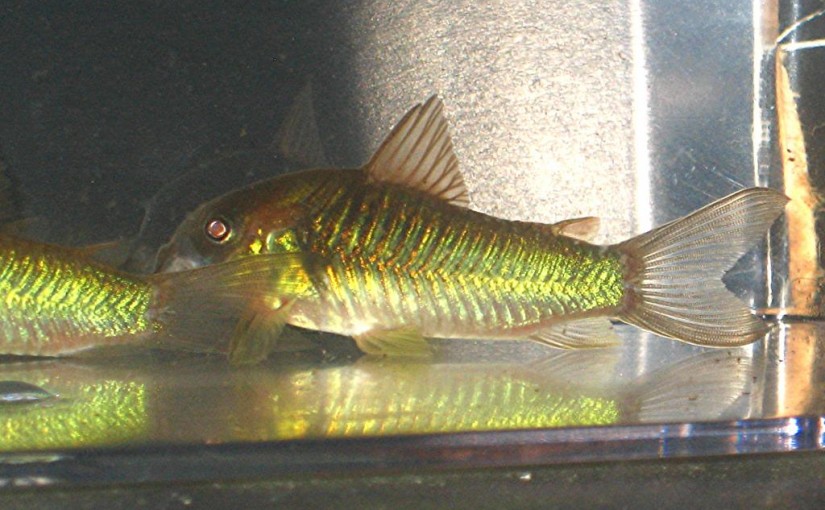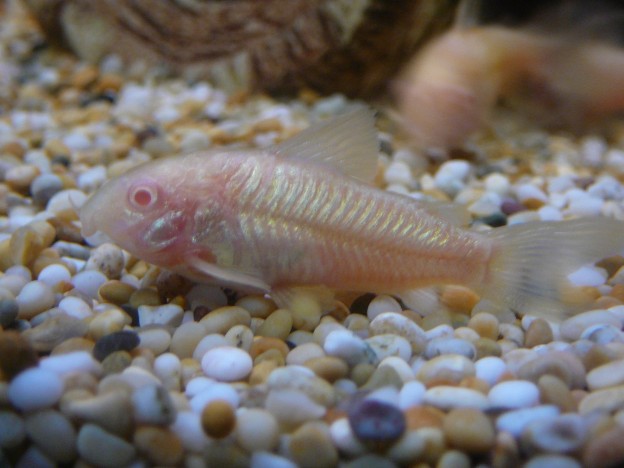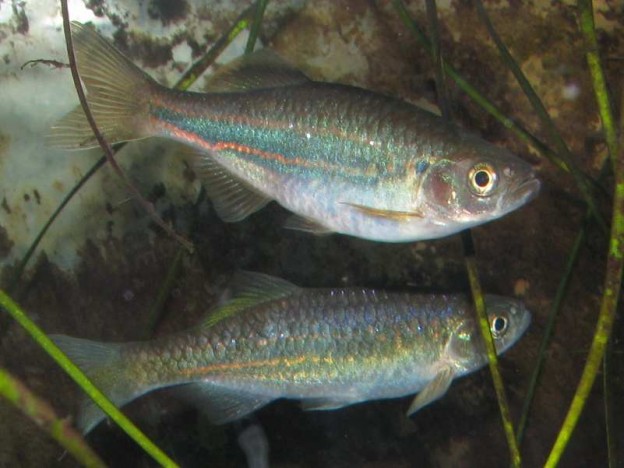Marmorkrebs, or marbled crayfish, are parthenogenetic crayfish that were discovered in the pet trade in Germany in the 1990s.
Archives: Fish
Corydoras aeneus (green)
I got these beauties from Holly over at HCA Aquatics. I had been watching as she sold young fish on Aqua-Bid and when she listed her breeders I knew it was now-or-never if I wanted some for my fish room.
Size
75mm (3 inches). Standard Length
Comments
I’m not normally a big cat fish fan, but what fish room would be complete with some of these fish!
Care Info
These fish are very hardy and undemanding in the aquarium. I like to keep them in either bare bottom or tanks with sand for substrate. Don’t believe the misconception that these fish will live off of scraps and whatever they can find in your tank. To be healthy and happy they need to be fed just like any other fish. They are not picky eaters and will accept most anything offered.
Spawning Info
There is a wealth of spawning info on these fish available on the Internet. I have found them very easy to spawn once they are mature and well fed.
Corydoras aeneus (albino)
While these are truly wonderful fish, I come to have them completely by accident. I was attending the 2013 GCAS fall auction with my good friend Bob Townsend. We had been watching the plecos all day and I was especially keen to get some male albino busy nose. We were talking with GCAS president Phil Benes when some albinos came to the block. They went for a great price and I was very pleased until the runner brought them around and they were albino cories and not plecos!
These fish were described as Hoplosoma aeneum by Theodore Gill in 1858. The original fish were collected at Trinidad Island, West Indies and is often said to range over a large area in South America. Recently this has come into question and it is believed that many similar looking fish have simply been misidentified as Corydoras aeneus.
These fish typically inhabit quiet, shallow waters with soft silt or sand bottoms.
Size
75mm (3 inches). Standard Length
Comments
I’m not normally a big cat fish fan, but what fish room would be complete with some of these fish! Even though I got them by mistake, I have thoroughly enjoyed having them.
Care Info
These fish are very hardy and undemanding in the aquarium. I like to keep them in either bare bottom or tanks with sand for substrate. Don’t believe the misconception that these fish will live off of scraps and whatever they can find in your tank. To be healthy and happy they need to be fed just like any other fish. They are not picky eaters and will accept most anything offered.
Spawning Info
There is a wealth of spawning info on these fish available on the Internet. I have found them very easy to spawn once they are mature and in good condition.

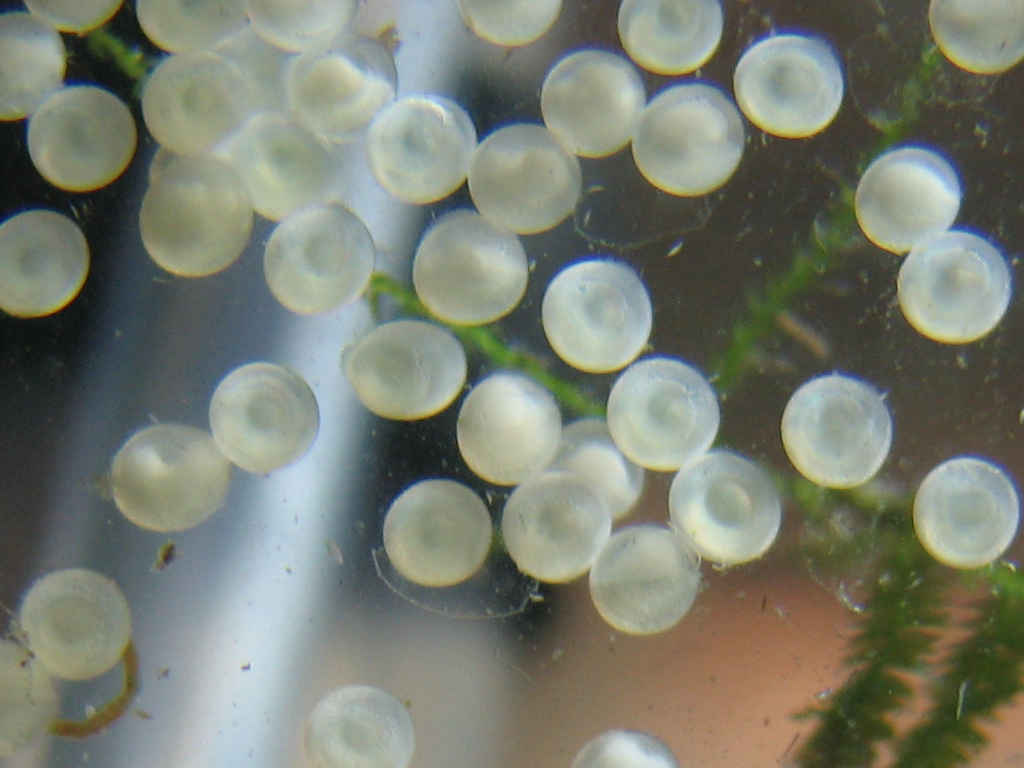
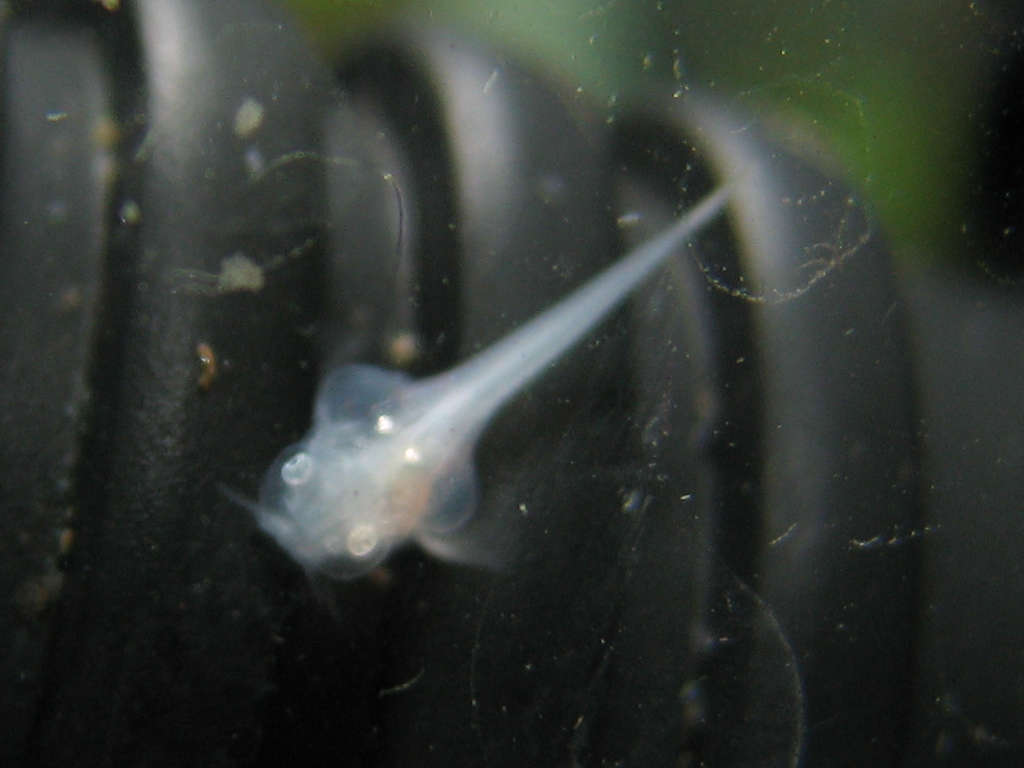
Devario acrostomus
Origin:
These fish are a very new addition to the hobby. Once again, I was fortunate enough to acquire some of these fish by way of Stephan Tanner of Swiss Tropicals.
This species was described from the Nam Mang drainage, which forms part of the Mekong River drainage in northern Lao PDR (Fang and Kottelat 1999). It was originally described as Danio acrostomus, but was transferred to the genus Devario by Fang (2003).
In the wild, Devario acrostomus inhabits forested streams with clear water and a substrate of large boulders. The fish can be found in habitats within the streams ranging from isolated deep pools to fast-flowing stretches.
Size
80mm (3.15 inches). Standard Length
Comments
These fish are very hard to find in the hobby, but are worth the effort when you get a chance to obtain some. They are large active swimmers, that will eat almost anything offered.
Care Info
Like a good many of the other Danios, these fish are very hardy and undemanding in the aquarium.
Spawning Info
I was very fortunate to pick up a bag of these fish at our local club fall auction in 2013. With lots of live foods and frequent large water changes, they spawned for me within several weeks.
The fish were housed in a tank with a thick growth of vallisneria and this prevented the adults from eating the eggs and the resulting fry.
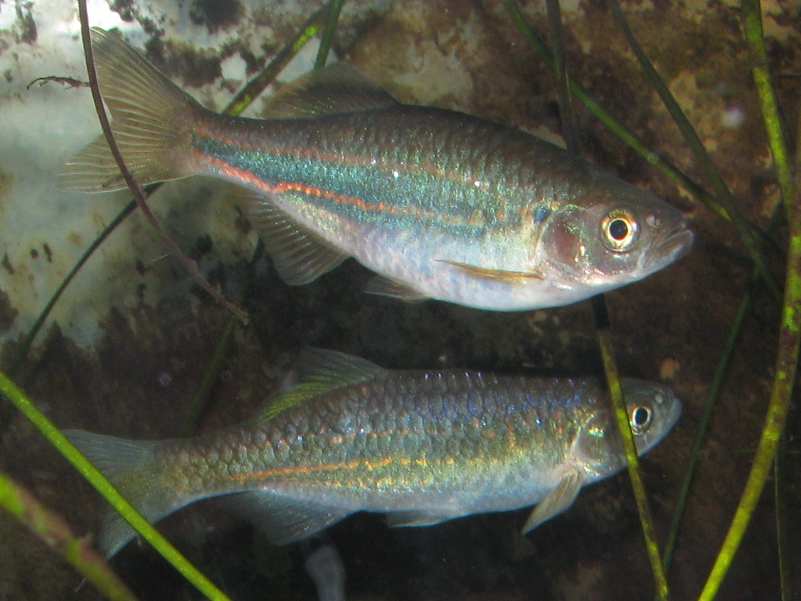
Fry at roughly 3 months of age…..
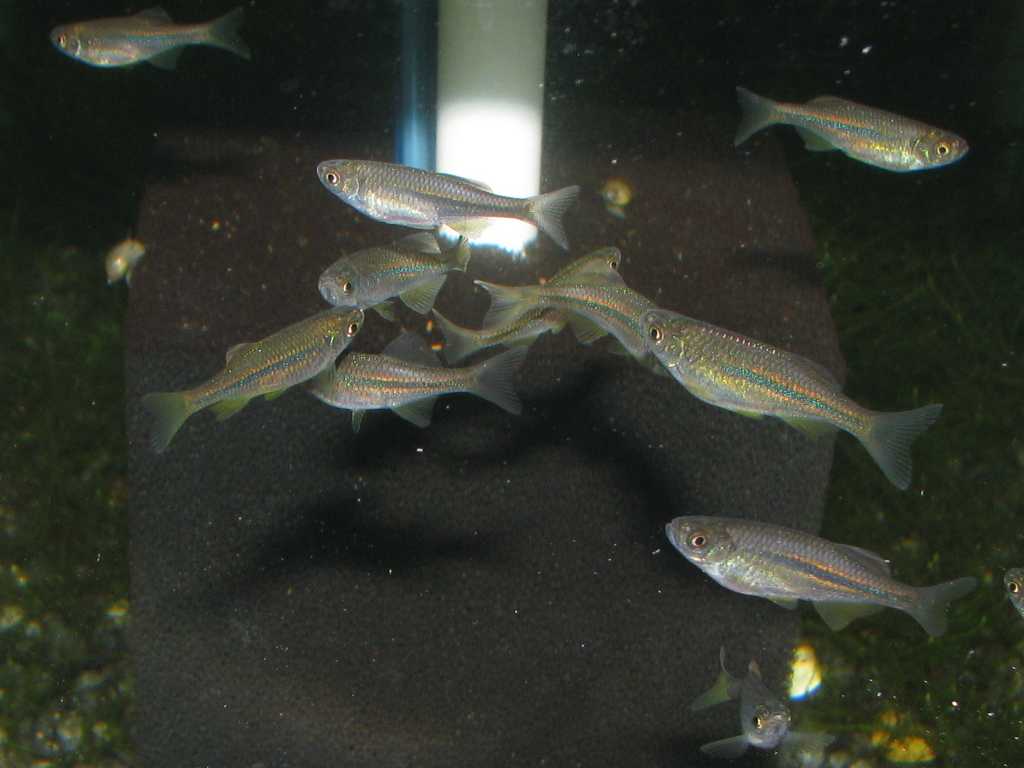
Danio rerio var. Frankei
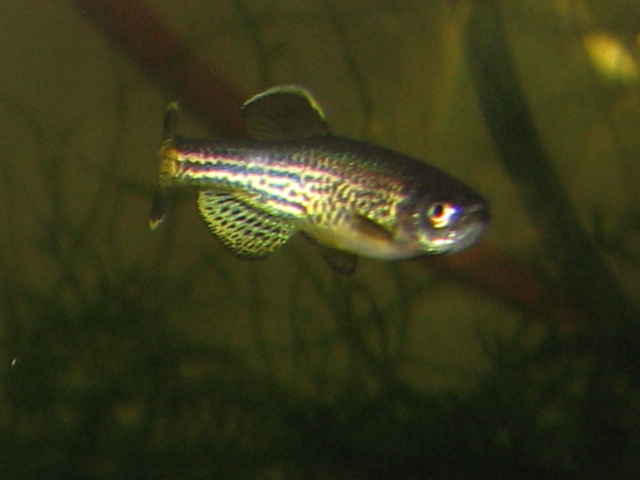
Leopard Danios, (Danio rerio var. Frankei), are a hybrid variety of the Zebra Danio (Danio rerio). As such, they have been in the hobby for many years.
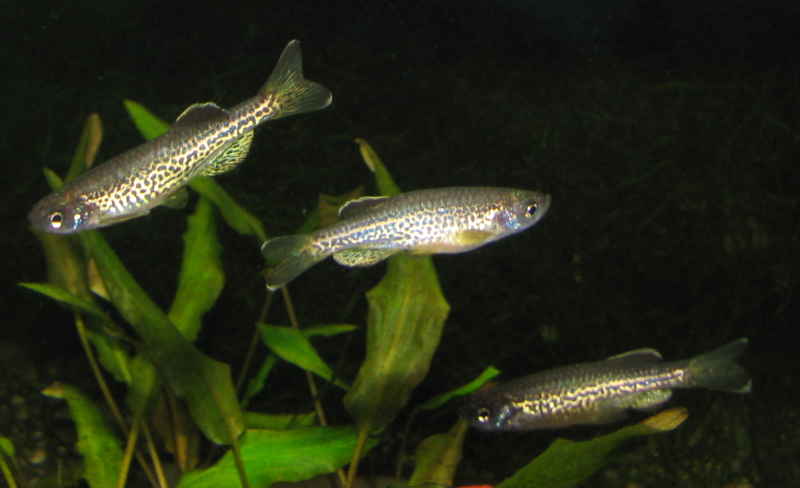
I purchased my group of fish from a local store called Jack’s Aquarium, but I believe they have since changed their name to Jack’s Pets as they have a variety of pets that they sell.
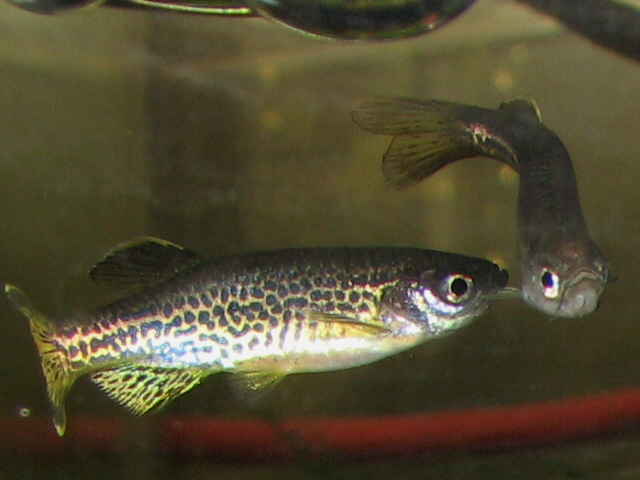
My fish are a rich golden color, but I will occasionally get a silvery blue fry and have often though of trying to develop a line of more blue colored fish.

